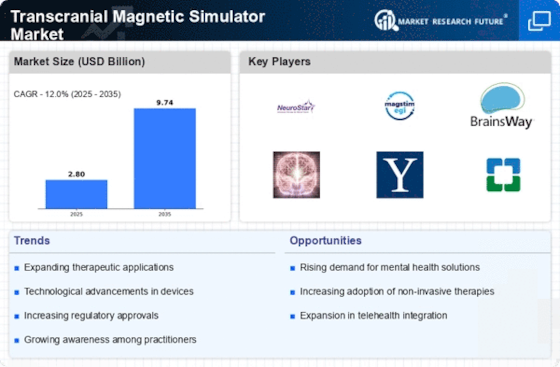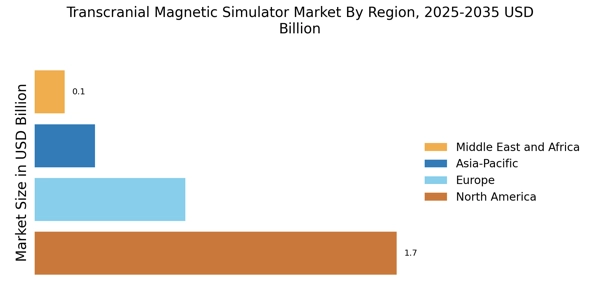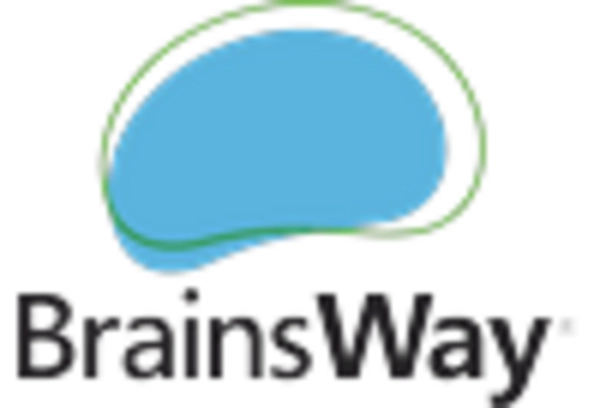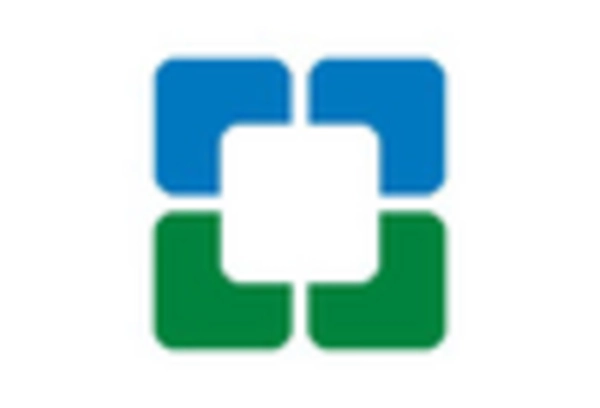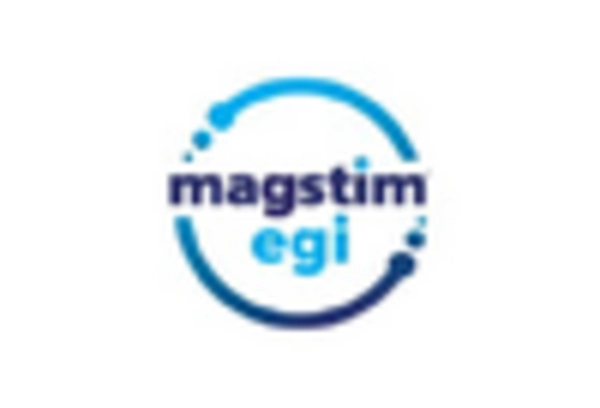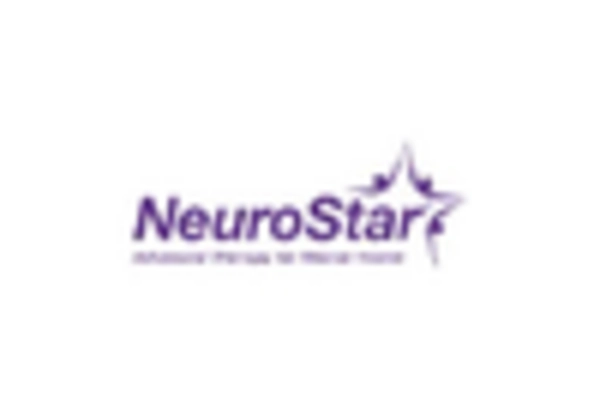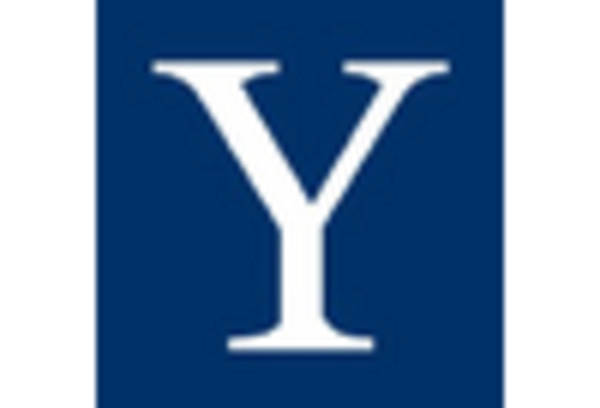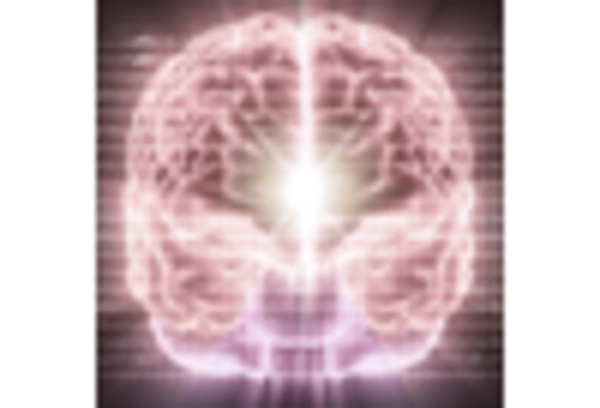Increased Focus on Mental Health
The Transcranial Magnetic Simulator Market is benefiting from a heightened awareness and focus on mental health issues. Governments and organizations are increasingly recognizing the importance of mental well-being, leading to initiatives aimed at improving access to mental health care. This shift in perspective is fostering a more favorable environment for TMS therapies, as they are seen as viable options for treating various mental health conditions. The market is expected to expand as more healthcare facilities adopt TMS technology, driven by the growing recognition of mental health as a critical component of overall health. This trend is likely to result in increased funding and support for TMS research and implementation.
Technological Advancements in TMS Devices
The Transcranial Magnetic Simulator Market is experiencing a surge in technological advancements that enhance the efficacy and safety of TMS devices. Innovations such as neuronavigation systems and improved coil designs are being integrated into TMS equipment, allowing for more precise targeting of brain regions. This precision is crucial for optimizing treatment outcomes for conditions like depression and anxiety. Furthermore, the introduction of portable TMS devices is expanding accessibility, enabling treatments in various settings beyond traditional clinical environments. As a result, the market is projected to grow at a compound annual growth rate of approximately 10% over the next five years, driven by these advancements that promise to improve patient experiences and outcomes.
Regulatory Support and Funding Initiatives
Regulatory support and funding initiatives are playing a pivotal role in the growth of the Transcranial Magnetic Simulator Market. Governments and health organizations are increasingly providing grants and subsidies to promote research and development in TMS technologies. This financial backing is essential for fostering innovation and ensuring that TMS devices meet safety and efficacy standards. Additionally, regulatory bodies are streamlining approval processes for new TMS devices, which encourages manufacturers to invest in this market. As a result, the industry is poised for growth, with an anticipated increase in the number of TMS devices available for clinical use, thereby enhancing treatment options for patients.
Rising Incidence of Neurological Disorders
The increasing prevalence of neurological disorders is a key driver for the Transcranial Magnetic Simulator Market. Conditions such as depression, anxiety, and chronic pain are becoming more common, leading to a higher demand for effective treatment options. According to recent estimates, nearly 300 million individuals worldwide suffer from depression, highlighting the urgent need for innovative therapies. TMS has emerged as a non-invasive alternative to traditional treatments, appealing to patients seeking fewer side effects. This growing patient population is likely to propel the market forward, as healthcare providers look to incorporate TMS into their treatment protocols to address the rising burden of mental health disorders.
Growing Acceptance of Non-Invasive Treatments
The growing acceptance of non-invasive treatments is significantly influencing the Transcranial Magnetic Simulator Market. Patients and healthcare providers are increasingly favoring non-invasive therapies over traditional invasive procedures due to their lower risk profiles and quicker recovery times. TMS, as a non-invasive treatment modality, is gaining traction among clinicians and patients alike, particularly for conditions like depression and PTSD. This shift in treatment preferences is likely to drive market growth, as more individuals seek alternatives to pharmacological therapies. The increasing body of clinical evidence supporting the efficacy of TMS is further solidifying its position in the mental health treatment landscape, suggesting a promising future for the industry.


